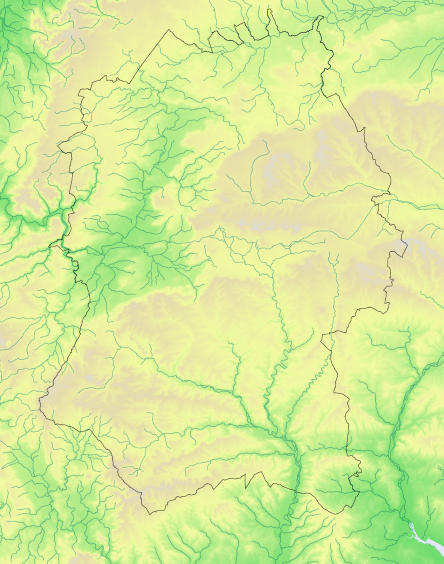Greylag Goose Anser anser
Breeding distribution change
Scarce/local resident following releases in southern Britain, recent vagrancy from other populations unproved
Atlas species lists
- Breeding distribution 1995–2000
- Summer abundance 1995–2000
- Winter distribution 1995–2000
- Winter abundance 1995–2000
- Breeding distribution 2007–2012
- Summer abundance 2007–2012
- Winter distribution 2007–2012
- Winter abundance 2007–2012
- Breeding distribution change
- Summer abundance change
- Winter distribution change
- Winter abundance change
More Greylag Goose maps
- Breeding distribution 1995–2000
- Summer abundance 1995–2000
- Winter distribution 1995–2000
- Winter abundance 1995–2000
- Breeding distribution 2007–2012
- Summer abundance 2007–2012
- Winter distribution 2007–2012
- Winter abundance 2007–2012
- Breeding distribution change
- Summer abundance change
- Winter distribution change
- Winter abundance change
More maps for this atlas
Map explanation
This map shows where changes occurred in the breeding season distribution of the species in Wiltshire between 1995-2000 and 2007-2012, as revealed by the fieldwork for Birds of Wiltshire (Wiltshire Ornithological Society 2007) and the shared fieldwork for Bird Atlas 2007-2011 (BTO 2013) and for Wiltshire Tetrad Atlas 2007-2012.
Gains and improvements
Status
Nos tetrads

Absent to present
16
2%

Present to breeding
3
<1%

Absent to breeding
9
1%
No change
Status
Nos tetrads

Present in both
3
<1%

Breeding in both
1
<1%
Losses and declines
Status
Nos tetrads

Present to absent
9
1%

Breeding to present
1
<1%

Breeding to absent
3
<1%
Domesticated Greylag Geese have existed in Wiltshire at least since the early Iron Age and the occasional records in the years up to the mid-1960s are most likely to have been of escapes from domesticated flocks rather than vagrants from genuinely wild populations. There were no records in Wiltshire in the 1968-72 Breeding Atlas but from the mid-1970s onwards increasing numbers began appearing, first in the Cotswold Water Park (CWP) and subsequently at other sites, believed to be derived from birds released by wildfowling interests.
Breeding was first recorded at the CWP in 1976 and 1977 but not again until the 1990s. Since 1998 breeding has been recorded at the CWP in every year except 2002.
Birds of Wiltshire recorded Greylag Geese present in the breeding season in 20 tetrads, with confirmed or probable breeding in five of them. Fieldwork for Bird Atlas 2007- 2011 recorded them in 33 tetrads, breeding in 13. The increase was almost entirely in the north of the county, particularly in the CWP, on the Swindon lakes and along the River Kennet.
The past decade has also seen an increase in winter numbers. Birds of Wiltshire noted that winter flocks “usually do not exceed 20” though a count of 115 was recorded at Inglesham in February 1997, at the time a record for the county. Winter numbers at the CWP began to increase from 2001 onwards and there have been totals in excess of 100 every year since 2008. The CWP record now stands at 225, in November 2011, while the Inglesham record has increased to140, in January 2011.
The breeding season relative abundance change map in Bird Atlas 2007- 2011 showed no significant change anywhere in Wiltshire.
References
The following references are used throughout these species accounts, in the abbreviated form given in quotation marks:
“1968-72 Breeding Atlas” – Sharrack, J.T.R. 1976: The Atlas of Breeding Birds in Britain and Ireland. T. & A. Poyser
“1981-84 Winter Atlas” – Lack, P.C. 1986: The Atlas of Wintering Birds in Britain and Ireland. T. & A. Poyser
“1988-91 Breeding Atlas” – Gibbons, D.W., Reid, J.B. & Chapman, R.A. 1993: The New Atlas of Breeding Birds in Britain and Ireland 1988-91. T. & A. Poyser
“Birds of Wiltshire” – Ferguson-Lees, I.J. et al. 2007 : Birds of Wiltshire, published by the tetrad atlas group of the Wiltshire Ornithological Society after mapping fieldwork 1995-2000. Wiltshire Ornithological Society.
“Bird Atlas 2007-2011” – Balmer, D.E., Gillings, S., Caffrey, B.J., Swann, R.L., Downie, I.S. and Fuller, R.J. 2013: Bird Atlas 2007-2011: the Breeding and Wintering Birds of Britain and Ireland
“WTA2” – ("Wiltshire Tetrad Atlas 2 ") the present electronic publication, bringing together the Wiltshire data from “Birds of Wiltshire” and “Bird Atlas 2007-11”, together with data from further fieldwork carried out in 2011 and 2012.
"Hobby" - the annual bird report of the Wiltshire Ornithological Society.

